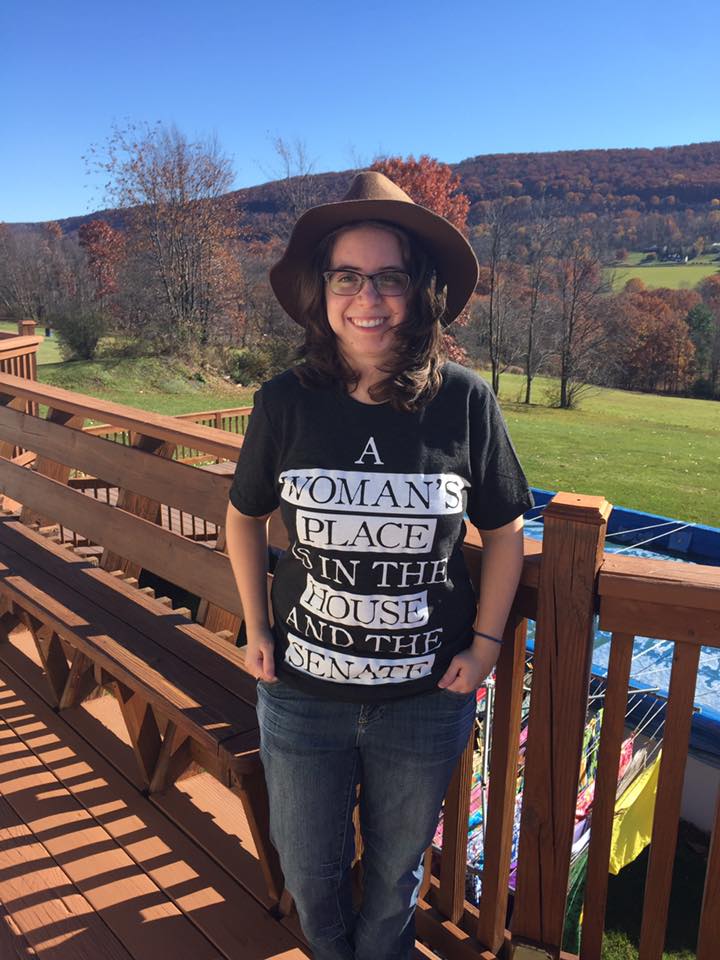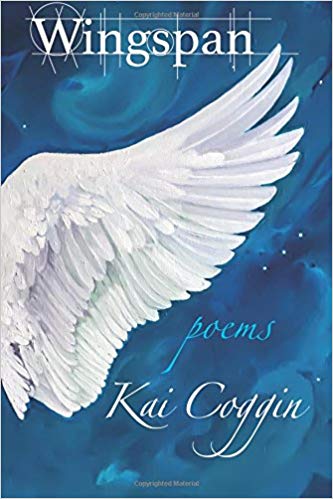ISSN: 1941-4137
POETRY THAT ENACTS THE ARTISTIC AND CREATIVE PURITY OF GLASS
POETRY THAT ENACTS THE ARTISTIC AND CREATIVE PURITY OF GLASS

Sara Pisak is a graduate student earning her MFA in creative nonfiction from Wilkes University. She is employed as a Contributing Editor at Helen: A Literary Magazine and a freelance writer/editor. Sara participates in the Poetry in Transit Program and has recently published work in the Deaf Poets Society, Five:2:One Magazine, Moonchild Magazine, and Boston Accent. When not writing, Sara can be found spending time with her family and friends. You can follow her writing adventures on Twitter: @SaraPisak10.
December 11, 2019
Edited by Stephanie Kaylor
Edited by Stephanie Kaylor
Review of Wingspan by Kai Coggin
 Wingspan
by Kai Coggin
Golden Dragonfly Press, 2016
Kai Coggin’s Wingspan (Golden Dragonfly Press, 2016) takes the reader through the emotional ups and downs of being human. Add Coggin’s unique personal insight and her action-driven imagery coupled with chaotic world events that have become sadly too commonplace and you have a book that will strengthen a reader’s empathy. Through shared empathy, Wingspan is a collection which shows beauty in pain, love in loss, and activism in an unjust world.
These are poems of power and of action; they call the reader to be better, to be a leader. Action and physicality sweep through the poems housed in Wingspan. The book’s opening stanza reads:
I was born cut out of the abdomen of a star,
dropped from the Heavens into chaos and form,
sky stitched up with lace to lay me down into this body,
undercurrent of becoming fire,
growing up into beacon,
filling out the empty skin of a torch.
Technically speaking, Coggin employs a series of action-driven metaphors and phrases. Readers can feel the physicality of birth and the flames of the torch. Tapping into the corporeal, Coggin creates an authentic experience. These poems are as much about outwardly observing the world, as they are about looking inward to the self. Readers can see and feel themselves becoming the burning torch, a beacon for activism, compassion, and a bright future.
Some of the strongest poems included in Wingspan are those in which Coggins offers her insight and relatable commentary on world events. In these poems, Coggin shows the speaker to be empathic and understanding of people and situations. She asks readers to join the speaker and expand their tolerance, using their wings to embrace those people and events that might be different from themselves. The Freedom Tower, the Supreme Court ruling on Same-Sex Marriage, and the Charleston Massacre are among recent events Coggin examines. Touching on these topics, she asks readers not to “look away” but to take a stand when they see injustice; she asks readers to be supportive and amplify the voices of those who are experiencing difficulties, prejudices and extreme hatred and violence because of their identity.
These works regarding social justice are interwoven among those which show Coggin’s own personal struggles and triumphs as well as her family history in works such as “Changing My Own Name / Kai & Kimberly” and “Dad & The Dalai Lama (for my father, Dan Coggin);” thus, creating a collection examining the fullness and understanding of life’s complexities.
Coggin’s work is full of show stopping lines, worthy of making readers pause to consider the gravity and carefully curated images. Almost every poem in the 196-page collection has a line worthy of quotation. But Coggin returns to the idea of being a torch. In the final words of the book she writes:
LIGHT
UNFOLDING
INFINITELY
Coggin’s final thoughts flicker with the assertion that when people respect each other they are the light; they are the torch lighting the way for others through understanding.
Visit Kai Coggin's Website
Visit Golden Dragonfly Press' Website
Wingspan
by Kai Coggin
Golden Dragonfly Press, 2016
Kai Coggin’s Wingspan (Golden Dragonfly Press, 2016) takes the reader through the emotional ups and downs of being human. Add Coggin’s unique personal insight and her action-driven imagery coupled with chaotic world events that have become sadly too commonplace and you have a book that will strengthen a reader’s empathy. Through shared empathy, Wingspan is a collection which shows beauty in pain, love in loss, and activism in an unjust world.
These are poems of power and of action; they call the reader to be better, to be a leader. Action and physicality sweep through the poems housed in Wingspan. The book’s opening stanza reads:
I was born cut out of the abdomen of a star,
dropped from the Heavens into chaos and form,
sky stitched up with lace to lay me down into this body,
undercurrent of becoming fire,
growing up into beacon,
filling out the empty skin of a torch.
Technically speaking, Coggin employs a series of action-driven metaphors and phrases. Readers can feel the physicality of birth and the flames of the torch. Tapping into the corporeal, Coggin creates an authentic experience. These poems are as much about outwardly observing the world, as they are about looking inward to the self. Readers can see and feel themselves becoming the burning torch, a beacon for activism, compassion, and a bright future.
Some of the strongest poems included in Wingspan are those in which Coggins offers her insight and relatable commentary on world events. In these poems, Coggin shows the speaker to be empathic and understanding of people and situations. She asks readers to join the speaker and expand their tolerance, using their wings to embrace those people and events that might be different from themselves. The Freedom Tower, the Supreme Court ruling on Same-Sex Marriage, and the Charleston Massacre are among recent events Coggin examines. Touching on these topics, she asks readers not to “look away” but to take a stand when they see injustice; she asks readers to be supportive and amplify the voices of those who are experiencing difficulties, prejudices and extreme hatred and violence because of their identity.
These works regarding social justice are interwoven among those which show Coggin’s own personal struggles and triumphs as well as her family history in works such as “Changing My Own Name / Kai & Kimberly” and “Dad & The Dalai Lama (for my father, Dan Coggin);” thus, creating a collection examining the fullness and understanding of life’s complexities.
Coggin’s work is full of show stopping lines, worthy of making readers pause to consider the gravity and carefully curated images. Almost every poem in the 196-page collection has a line worthy of quotation. But Coggin returns to the idea of being a torch. In the final words of the book she writes:
LIGHT
UNFOLDING
INFINITELY
Coggin’s final thoughts flicker with the assertion that when people respect each other they are the light; they are the torch lighting the way for others through understanding.
Visit Kai Coggin's Website
Visit Golden Dragonfly Press' Website
Glass: A Journal of Poetry is published monthly by Glass Poetry Press.
All contents © the author.
All contents © the author.





